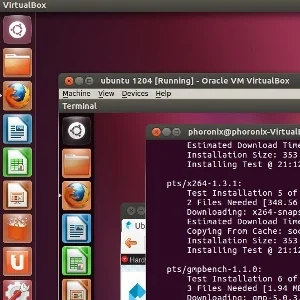Cloud Hypervisor 38 Brings Extended CPU Affinity, Improved VFIO Device Support

Cloud Hypervisor 38 adds support for throttling a group of block devices with a new group rate limiter option, CPU pinning support for the block device worker thread, optimized boot times with the parallel memory prefault, a new "debug-console" device, improved VFIO device support, extended CPU affinity support, enabling nested virtualization on AMD platforms where supported, and a variety of other fixes.
With the improved VFIO device support, all non-emulated MMIO regions of VFIO devices are now mapped to the VFIO container and allows for PCIe peer-to-peer (P2P) between all VFIO devices on the same VM. In particular, this will help with multi-GPU workloads involving GPUDirect P2P, GPUDirect RDMA, and more.
Intel, UbiCloud, Microsoft, Stripe, Cyberus, Cruso Energy, Tencent, and others contributed to Cloud Hypervisor 38. Downloads and more details on this week's Cloud Hypervisor 38 release via CloudHypervisor.org.
1 Comment

